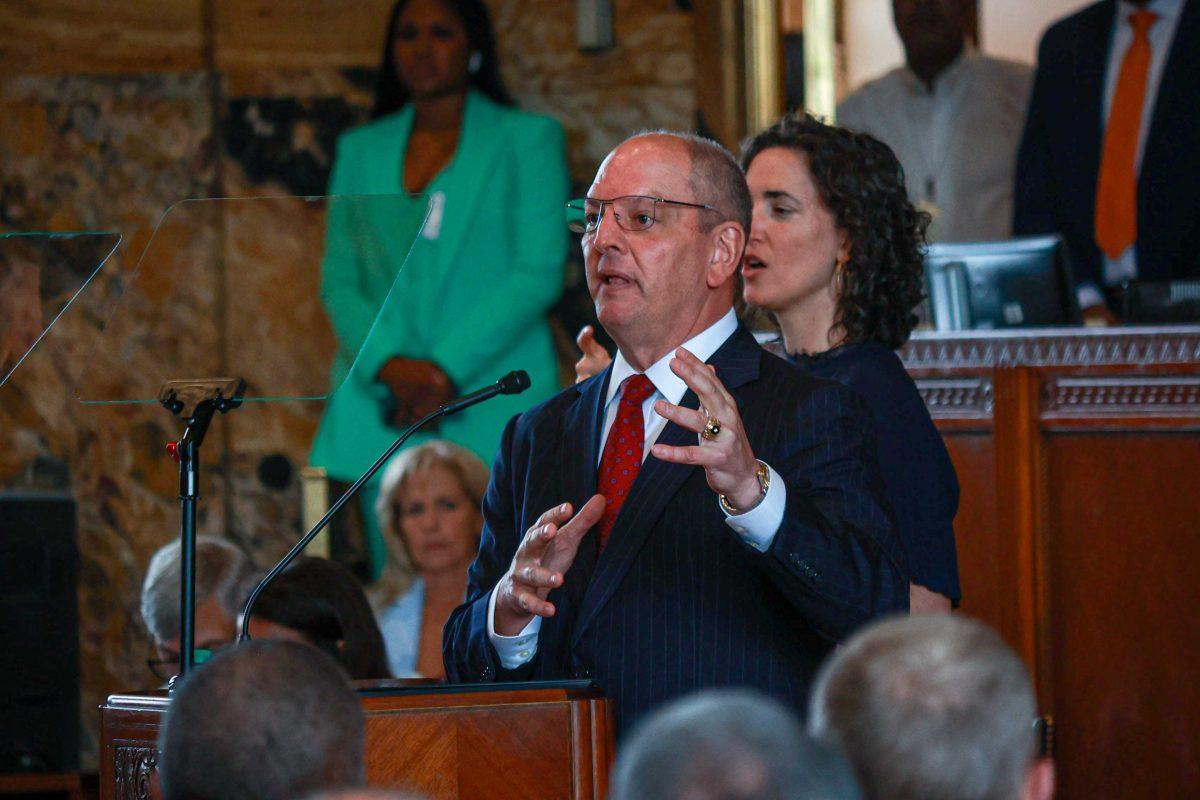For decades, to be pro-life has been exclusively synonymous with being anti-abortion.
But this wasn’t always the case. When the pro-life movement started in the 1970s, it was led by New England Catholics who advocated for a spectrum of policies that are now considered to be both conservative and liberal: ending abortion and capital punishment and advocating for a financial safety net for young and single-parent households.
Things changed roughly a decade later, when southern evangelicals took over the coalition’s reins, modifying the definition of pro-life to be a blend of “southern populism,” “economic libertarianism” and “Bible Belt moral regulation,” said historian Daniel K. Williams – a definition that still persists to the present day.
Louisiana Governor John Bel Edwards, it seems, is looking to revert this definition back to its previous, New England Catholic form. Earlier this month, in his final State of the State address to the Louisiana legislature, Edwards called on his colleagues in the capitol to find ways to raise teachers’ salaries, raise the minimum wage and most significantly, abolish the death penalty.
Edwards’ plea for the end of capital punishment in Louisiana is an odd political stance to take for what has otherwise been a middle-of-the-road administration. Typically, only deep blue Democrats see the death penalty as wrong; and Edwards’ staunchly anti-abortion position has been nearly identical to that of crimson red Republican governors, like Florida’s Ron DeSantis.
What are the reasons for Edwards’ unique stance? Perhaps it’s because of the governor’s Catholic roots, specifically Rome’s position on the inherent dignity of human persons.
“Human life is sacred … no one can under any circumstance claim for himself the right directly to destroy an innocent human being,” the Church states in paragraph 2258 of its catechism.
This understanding is a part of a larger Catholic social teaching that emphasizes a moral imperative, a duty, to help marginalized groups and communities, especially the poor and homeless.
On the issue of economics, the Church’s catechism states that individual citizens, employers and the state itself should provide those under their authority with the necessary means to live a productive, healthy and godly life. A business should not simply exist to increase profits; it should also aim to increase the wellbeing of its workers and its surrounding community. Similarly, employers and the government should provide a just wage – fair pay for fair work.
The Catholic Church teaches these positions are clearly in line with “God’s plan for man,” or the natural purpose for which people were made. To violate or come in between these natural ends is wrong and sinful.
It’s easy to see Edwards’ Catholic influence in his pleas for Louisiana to address these fundamental issues, like abortion, but also on economic issues, like the minimum wage.
It also explains the governor’s willingness to shirk the traditional political binary on issues like abortion.
Clearly Edwards is hoping to broaden the state’s definition of what it means to be pro-life. It’s more than someone who is simply anti-abortion; it’s someone who cherishes all life, from the moment of conception to the natural passing of individuals from this world to the next.
For Catholics, like myself, Edwards’ position is a refreshing one, not only because it aligns with the teachings of our Church, but also because it’s a much more comprehensive understanding of the value of life that extends beyond the partial view that a largely evangelical Protestant stance takes. It’s a stance that often relegates itself to a moral libertinism wherein people are left to their own devices, save a select number of prohibitions defined by a small subset of poorly articulated moral chastisements.
To be pro-life doesn’t just mean disallowing abortions. It also means taking on the responsibility of a life once it enters the world – certainly not leaving innocent babies and children to the many inadvertent yet ever-present abuses of the foster care system or leaving helpless workers and homeless people starved and unprotected on the crime ridden streets of our state.
Edwards’ understanding of the wide breadth of the full meaning of the term “pro-life,” in many ways, makes him perhaps the most pro-life governor of our state, which all advocates for life – Democrat or Republican, Protestant or Catholic – should celebrate.
Benjamin Haines is a 24-year-old history graduate student from Shreveport.





